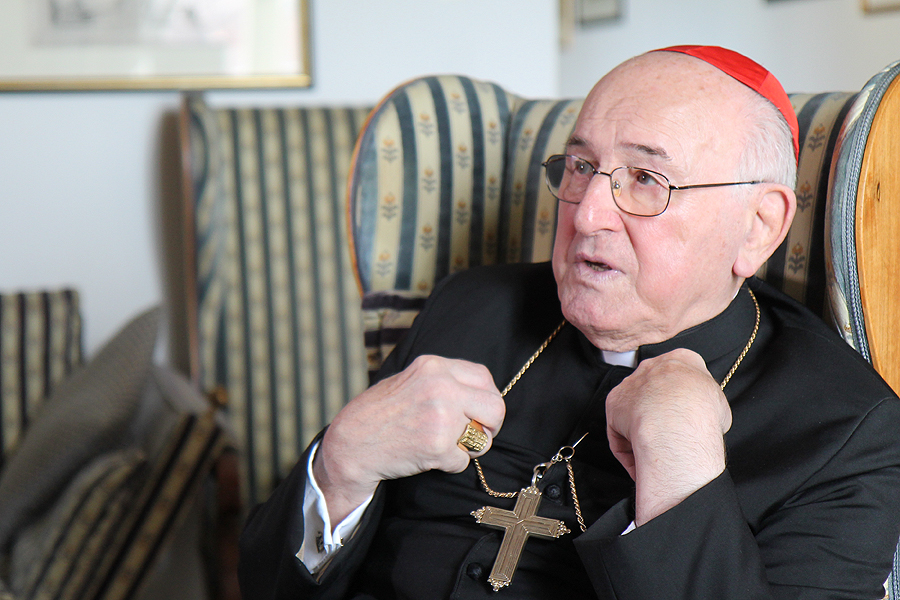
Cardinal Walter Brandmüller, a retired member of the Curia, had been the only cardinal so far to make a stronger comment on the content of Amoris Laetitia, and he did so only a few days before the exhortation’s official release. As we earlier reported, his same statement was also published on 9 April, one day after the official release of Amoris Laetitia. This led us to believe that he intended therewith to rebuke the actual papal document, and to do so publicly.
However, yesterday, 2 May 2016 – the Feast of Saint Athanasius – Cardinal Brandmüller retracted this impression in an interview with the German news agency KNA, as reported by the Austrian Catholic website kath.net. While correcting this earlier perception, Cardinal Brandmüller nonetheless repeated his original statement, however, that the pope cannot change the Church’s irreformable teaching.
First of all, Cardinal Brandmüller now specifically says that since the publication of Amoris Laetitia, he “has not yet made any public statement about it.” And he adds: “I had merely published an interpretation guide for the expected document. It is not fitting to speak here of a critique.”
However, with reference to some interpretations of the papal document, the German cardinal admits that there are, “indeed, some interpretations that go into the wrong direction.” And he continues: “To admit exceptions in individual cases is an impasse. I made this clear in my interpretation guide. What is impossible for reasons of Faith, is impossible also in the individual case. This was valid before the publication of Amoris Laetitia, just as it is valid thereafter.”
Brandmüller denies that there is really to be found in the document an allowance for the “remarried” divorcees to receive the Sacraments. At the same time, he says:
Whoever thinks that he has found in Amoris Laetitia a licit possibility for the concerned persons to receive Absolution and Holy Communion, has, after all, only to go and search for it in footnote 351 of the eighth chapter. Indeed, there it is mentioned that the Church may, in certain cases, grant such faithful also the help of the Sacraments. And indeed, this was interpreted in this sense.
Brandmüller repeats then his very important statement, according to which the Church cannot – i.e., is not permitted to – contradict herself in these irreformable moral matters:
But, it is not specifically said what kind of special cases are meant here. It is also to be questioned, whether a footnote of approximately three lines is sufficient in order to bring down the whole magisterial teaching of popes and councils concerning this subject. Certainly not! Rather, one has to interpret this footnote also in accordance with the continuous teaching of the Church. The Church cannot contradict herself.


